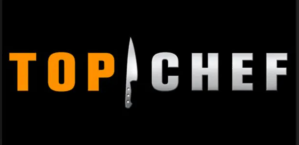Is the streaming service boom headed for a bust? According to a new study through professional service network Deloitte (per the Los Angeles Times), “46% of respondents canceled at least one streaming service in the last six months.” The survey revealed that 62% of participants canceled a service after finishing a particular show. Between Netflix, Hulu, HBO Max, Amazon Prime, and Disney+, the recent Peacock, and the upcoming Paramount+ to name a few, the average consumer just can’t keep up with that many different services.
This is not to say that people aren’t streaming. Netflix just announced that its new romance series Bridgerton smashed all its previous records, with 82 million households watching around the world in its first month. This record was previously held by The Witcher (76 million in its first 28 days).
Videos by PopCulture.com
Netflix is still winning the war with 200 million subscribers and counting, but Disney+ has quickly risen to 86 million since launching in 2019. With their ever-expanding slate of television shows and films in the Marvel and Star Wars cinematic universes, Disney+ is definitely making a play for major staying power.
The Los Angeles Times revealed that “streaming subscribers reported having an average of five services in October, up from the three they reported having before the COVID-19 pandemic.” However, this just means that the market is becoming increasingly saturated. “The competition for the streaming services is shifting to a different level,” Deloitte’s Media and Telecom Leader Kevin Westcott told the Los Angeles Times. “Over the last few years, the focus was on having exclusive, original content. In 2021, it’s going to come down to the user experience, and do you feel like a special VIP for being a member.”
Another thing to consider is the fact that many people are cutting costs due to the ongoing pandemic. A study conducted by OnePoll revealed that 65% of participants (2,000 Americans were polled) had made financial sacrifices to stay afloat, with 38% citing streaming services as one of the luxuries that they had cut from their budgets. As the economy continues to be incredibly unstable due to the prolonged nature of the COVID-19 pandemic, people have to make cuts to pay their more essential bills.
As each streaming service gets more and more specialized, consumers will have to make choices about which ones get their time and money. If you have to subscribe to half a dozen services at a time, is this really any better than a more traditional cable bundle?








